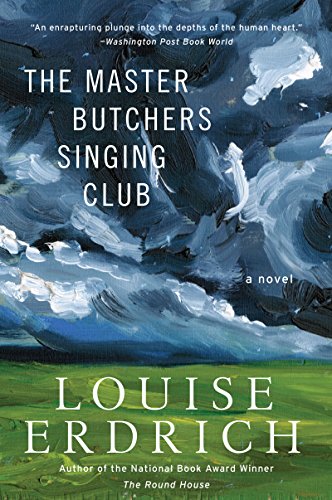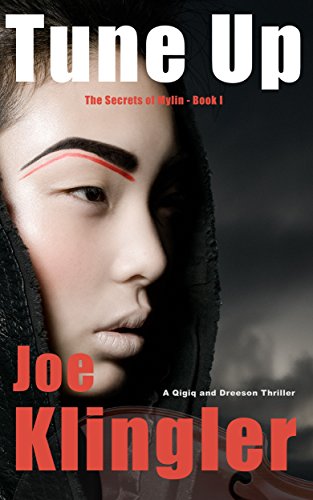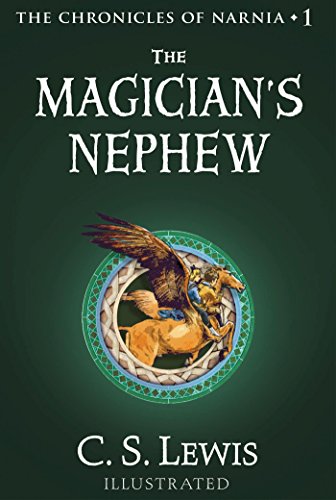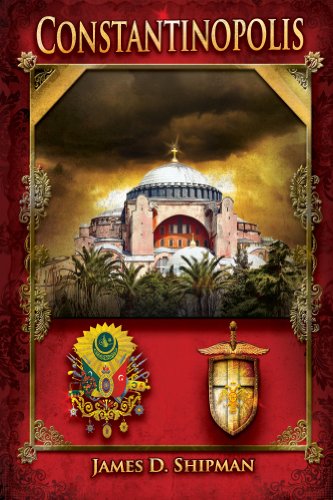Constantinopolis
by James Shipman
In 1453 Constantinople is the impregnable jewel of the East. It has stood as the greatest Christian city for a millennium as hordes have crashed fruitlessly against its walls.
But Mehmet II, the youthful Sultan of the Ottoman Turks, has besieged the city. His opponent is Constantine XI, the wise and capable ruler of the crumbling Eastern Roman Empire. Mehmet, distrusted by his people and hated by his Grand Vizer, must accomplish what all those before him have failed to do: capture Constantinople. To prove that he deserves the throne that his father once took from him, Mehmet, against all advice, storms the city. If he fails, he will not only have failed himself and his people, but he will surely lose his life.
On the other side of the city walls, the emperor Constantine must find a way to stop the greatest army in the medieval world. To finance his defenses, he becomes a beggar to the Pope, the Italian city-states, and the Hungarians. But the price for aid is high: The Pope demands the Greeks reunite the Eastern and Western churches and accept the Latin faith. If Constantine wants aid for his people he must choose between their lives and their souls.
Two leaders, two peoples, two faiths battle for their future before the mighty walls of Constantinople.
5-star praise for Constantinopolis:
“The author’s extensive historical research and knowledge show throughout the book. I felt like I was there watching history happen…”Loved it!
“Written as a novel, this is an enjoyable and balanced account of a complex historical event…presented in very readable prose…Highly recommended.”
an excerpt from
Constantinopolis
by James Shipman
CHAPTER ONE
Sunday, September 3, 1452
Mehmet held the twisting adolescent tightly while the dagger drove deeper into the boy’s throat. Blood was pumping from the wound but Mehmet was behind the body and most of the hot liquid splashed onto the cobblestones. The boy’s muscles convulsed beneath his hands, trying to break free, but Mehmet kept his left arm wrapped tightly around the boy’s waist while his right hand gripped the knife. Soon the body went limp, and he let it slide gently to the ground. He knelt down and wiped the dagger clean on the boy’s robes, then walked on casually into the darkness.
Mehmet waited a moment in the shadows, listening for voices or footsteps, then continued prowling the midnight streets of Edirne, capital of the Ottoman Empire. He was dressed in simple clothing that hung loosely on his frame. He was tall with dark features, a thin hooked nose and full, almost feminine lips. He was twenty-one, although he appeared older, particularly his eyes that held a cautious wisdom.
He enjoyed his walks in the dark. He liked Edirne. The former city of Adrianople still contained a large Greek population but also an increasing number of Ottomans. The narrow stone streets ambled through mixed neighborhoods with closely huddled residences, opening periodically to the large churches and cathedrals now largely converted to Mosques. Edirne had served as the capital of the Ottoman Empire since its capture in 1365, when it was moved from Bursa, in Anatolia. Bursa continued to serve as the religious center of the empire, and contained the tombs of the Ottoman founding fathers, Osman for whom the empire and people were named, and his son, Orhan.
As Mehmet walked through the sleeping city he let his thoughts wander, trying to relax. He loved the night—his quiet time to escape. He could let his mind mull over the questions and issues he had experienced during the day without the multiple interruptions and problems he was typically forced to address. He needed peace and quiet. He did not trust people, particularly those closest to him. Out here he could let down his guard. He also liked to eavesdrop, seeking information in the shadows that he would never learn otherwise.
At a crossroad, he came across a street sweeper who growled at him to move aside. As he did the sweeper looked into Mehmet’s face and gasped, falling to the ground in prostration. Mehmet sighed in annoyance and again drew his dagger, plunging it deeply into the sweeper’s neck. The man struggled in surprise, blood gurgling from the wound. Mehmet held him to the ground with his knee until he stopped moving, then wiped his blade clean on the man’s clothes and continued on. Two tonight. More than typical. He hated these interruptions. Why wouldn’t people simply leave him alone?
As he walked, he strained his ears to pick up conversations that would sometimes emanate from the thin walls of the closely crowded houses. He was searching for the thoughts of the city. He paused at a number of locations to pick up conversations, but he heard nothing of interest. As he passed the outside courtyard of a wealthy merchant’s home, he found what he was looking for.
“Times have changed,” stated a deep voice, speaking Turkish. Mehmet could speak Turkish and Greek, as well as Persian and Arabic.
“What do you mean?” answered another man, with a slightly higher voice. Both spoke the educated Turkish of the middle and upper class.
“Murad is dead. I think our days of glory are over. At least for now. For a hundred and fifty years our sultans have expanded our empire at the expense of the infidel Christians, but we can hardly expect that to continue.”
“Yes, Allah has favored our people.”
“Until now. Now what do we have? We have conquered Anatolia and driven our way far in to Europe. We have defeated the Italians and Hungarians and every crusading army sent by the infidels. How can we hold these gains? Not with a young sultan who twice had to give power back to his father? Who could not win control of his own household guard? I am afraid he will be driven from power and we will return to the bad days of civil war among our people.”
“Come now Ishtek, you are hardly being fair. He was only ten or eleven when he was made Sultan the first time. Murad should have kept the Sultanate until the boy was ready. I do not agree with you. I think he will do fine. Perhaps he will even be greater than Murad.”
“Bah! You are ever the optimist my friend. I will be content at this point to live out my life in Edirne, without being driven back to Bursa or further by the Hungarians. Can Mehmet stand up to John Hunyadi? Murad hardly could. I would not be surprised if Hunyadi’s armies were massing in the north right now, ready to strike against us.”
“Truly Hunyadi and the Hungarians are a threat. But we have not lost a major battle against the infidels. I do not think we will start now. Even under a weak Sultan. We still have our Grand Vizier Halil. He practically led our empire during the last few years of Murad’s reign, particularly when Murad relinquished power to his son. He will know what to do.”
“Ah yes, Halil. Allah bless him. If only he were our Sultan. He is wise and holy, and cares for the people. He practically is the Sultan. We must put our trust in him. He will lead us even if Mehmet cannot.”
“Mehmet. How can he come from Murad? We have had such good fortune. We have had such great leaders. Now we are left with an arrogant boy. We must pray for our salvation.”
Mehmet, Sultan of the Ottoman Turks, walked away from the home, having heard what he sought. He continued his walk, turning over carefully in his mind the words of the overhead conversation.
He was angry. He had almost burst through the door and killed the men right then and there. How could he though? They were right of course. Mehmet had failed terribly when he first became Sultan. He had wanted to do too much, too fast, and his father’s counselors and viziers worked against him. They had embarrassed him, let him make foolish mistakes, and then had called his father back, not once, but twice. Mehmet remembered the burning anguish when his father took the sultanate back the second time, chastising Mehmet with bitter words and sending him to govern a remote section of the Empire.
His father! Mehmet stewed when he thought of him. His father had never shown him any real affection or spent significant time with him. He was not, after all, originally the heir to the Sultanate. He was a second son and only became heir when his older brother died. Mehmet had been forced from then on to endure a frantic and often harsh tutoring process. He was just beginning to grasp his responsibilities when at the age of 12 his father had retired and named him Sultan. He had done the best he could to govern, but in short order Grand Vizier Halil had called his father back to take over the throne. The Sultan felt Halil should have helped him, should have supported him. Instead he had watched and reported Mehmet’s shortcomings to his father, betraying him and leading to his humiliation.
From then on Mehmet had bided his time. He had learned to keep his thoughts and emotions to himself, to trust no one. He had studied everything: military art, languages, administration, and the arts. He had worked tirelessly so that when he next ruled he would not only equal his father but also exceed him. He would be the greatest Sultan in the history of his people, Allah willing.
His chance came when Murad finally died only two years before, as Mehmet turned 19. Mehmet quickly took power, ordering his baby half brother strangled to assure there would be no succession disputes, and set to organizing his empire. He had learned to be cautious and measured, leaving his father’s counselors and even Halil in power to assist him. From there he had slowly built up a group of supporters. They were young and exclusively Christian converts to Islam. These followers, many of whom now held council positions, were not nearly as powerful as the old guard, but they were gaining ground. They were the future, if Halil did not interfere.
Halil. His father’s Grand Vizier and now his own. He had always treated Mehmet with condescending politeness. He was powerful, so powerful that Mehmet could not easily remove him. So powerful it was possible he could remove Mehmet in favor of a cousin or other relative. Mehmet hated him above all people in the world, but he could not simply replace him. He needed Halil, at least for now, and Halil knew it.
This dilemma was the primary reason for Mehmet’s nighttime wanderings. He needed time away from the palace. Time to think and work out a solution to the problem. How could he free himself from Halil without losing power in the process? He could simply order Halil executed, but would the order be followed or would it be his own head sitting on a pole? The elders and religious leaders all respected and listened to Halil. Only the young renegades, the Christian converts who owed their positions to Mehmet were loyal to him. If Halil was able to rally the old guard to him, Mehmet had no doubt that the result would be a life or death dispute.
Mehmet needed to find a cause that could rally the people to him. The conversations he had heard night after night told him this same thing. The people felt that his father was a great leader, and that he was not. If he could gain the people’s confidence, then he would not need Halil, and the other elders would follow his lead.
Mehmet knew the solution. He knew exactly what would bring the people to his side, and what would indeed make him the greatest Sultan in the history of the Ottoman people.
The solution however was a great gamble. His father and father’s fathers had conquered huge tracts of territory in Anatolia and then in Europe, primarily at the expense of the Greeks. Mehmet intended to propose something even more audacious, to conquer the one place that his ancestors had failed to take. If he succeeded he would win the adoration of his people and would be able to deal with Halil and any others who might oppose him. If he failed . . .
The Sultan eventually made his way back near the palace, to the home of his closest friend, Zaganos Pasha. Zaganos, the youngest brother of Mehmet’s father in law, had converted to Islam at age 13, and was Mehmet’s trusted general and friend. He was the most prominent member of the upstart Christian converts that made up the Sultan’s support base.
Zaganos was up, even at this late hour, and embraced his friend, showing him in and ordering apple tea from his servants. Zaganos was shorter and stockier than Mehmet, a powerful middle-aged man in the prime of his life. He had receding dark brown hair. A long scar cut across his forehead and down over his left eye. He looked on Mehmet with smiling eyes extending in to crow’s feet. He smiled like a proud uncle or father.
“How is my midnight vagabond? I trust you didn’t depopulate the entire city tonight?”
Mehmet smiled. “I was recognized only twice.”
“Good thing, because we’ll need people for our armies and this habit of yours is thinning the population too quickly. I can’t say I entirely approve and in any case, why kill them?”
Mehmet flushed in irritation. “I don’t need to be recognized. That is my time, the only time I have to myself. It is not too much to ask that I be left alone.”
“Well it would seem at some point the population would get the message. Just remember, we may need some of those people for our army.”
“I heard more talk this evening. More talk of my father.”
“Random killings aren’t my only problem with your evening wanderings. Listening to this gossip is no good for you. You are the Sultan, it doesn’t matter what these people think or say about you. You are their ruler by Allah’s will. You should kill a few of the people spreading such rumors. And quit listening to them.”
“Ah my friend but they speak the truth. Why should I punish those who simply speak what everyone is thinking? The people have no love for me. That much is very clear. They only remember my father, and they remember my past failures. They think I’m a child. They think I will bring them to ruin. I need to do something that will unite the people. Something extraordinary. I know what that something is.”
Zaganos stared at Mehmet for a moment before responding. He breathed heavily, clearly weary of a topic they had discussed too often.
“Constantinople? You make my head ache with this talk. Over and over you go on about taking that city. Constantinople is a curse to Islam. The cursed city has not fallen in eight hundred years despite our faith’s many attempts. Your father and his father tried again and again. How would failing again before the city’s subjects improve your position? You will give Halil all he needs to usurp your position, or replace you.”
“That city is a thorn in our side. It sits in the middle of our empire. The Greeks are through. Their empire now consists only of the city. Why should we allow a separate state hundreds of miles within our empire? A state of despicable infidels? We can never be a true empire while Constantinople remains in the hands of the Greeks. We must take it! I was born to take it! It is Allah’s will. Did not the blessed Prophet, peace be upon him, predict its fall, and that the people who captured the city would be blessed?” Mehmet could feel himself growing angry and his hands shook.
“It is true. But remember that your ancestors have built their empire step by careful step. Osman began in Anatolia with just a few hundred warriors, a leader among many leaders. He carefully built your territory up, as did each Sultan one after the other. Your father Murad shored up the empire’s power against Hungary, and in Anatolia. He would have taken Constantinople if he could, but he could not.
Your father was powerful, beloved by his people, with the full confidence of all his advisors and in the prime of his life. Still he could not take the city. You must place yourself in the same position if you wish to try. You are not ready for that task yet Sultan. You have so many summers ahead of you. I advise you to take your time. Win some small victories against the Serbians, or the Bulgarians. Build up your forces. Win the confidence of the people slowly. Then you can try Constantinople. Too many empires and armies have died at those city walls. Do not add yours to the tally.”
Mehmet stared hard at his friend. “You have known me all my life Zaganos. Do you think I am less than my father? Do you think I cannot take Constantinople if I want to? I will not waste my life under Halil’s boot. Every day he questions my authority. I see him whispering among the elders. I know he works against me. I will not continue to tolerate this. I must act decisively. I will take the city and then I will end that traitor’s life!”
“You’ll never get to the city. As you know, these sieges require months of preparation and the full resources of the empire. You cannot simply order the attack. I know that Murad could and did, but if you do, you risk Halil making a move against you now, when you are the weakest. He would have far too much time to maneuver against you.”
“Then I will call a council and win the full approval of my advisors.”
“A council? Nothing could be worse my friend. They won’t approve the plan, and you give Halil power to voice his concerns in public. He can defy you openly, while acting as if he simply is trying to give you advice. Please do not do this. Please follow my advice and start with less ambitious projects. You know I will follow you no matter what my friend. You are my Sultan, I am your servant, but I am afraid you try too much too quickly. Remember the lessons of your youth!”
“I remember them well.”
Several days later, Mehmet sat on his divan in the presence of the council. The Ottoman Council, an informal group of the top advisors of the empire, was made up of the Sultan, Grand Vizier Halil, the religious leader known as the Grand Mufti, and a number of lesser Viziers, generals, and members of the religious and civil community of the empire. In all, nearly thirty men assembled to hear the Sultan out regarding his proposal. Many of the men came from established Ottoman families, with just a few of Mehmet’s first generation Christian converts. There was a crackling air of tension in the palace room, with the two factions eyeing each other distrustfully. Zaganos and the younger members stood together and slightly apart from the senior council, emphasizing the divide.
Mehmet rose to address the council. The murmuring of greetings and small talk fell and soon it was quiet with all eyes focused on the Sultan. “My friends, I speak to you today of Constantinople. Since the Prophet himself, peace be upon him, walked among us, it has been our destiny to capture Constantinople. His standard bearer himself was slain before the city walls almost eight hundred years ago. For a hundred years now we have bypassed the city. We have attacked it without success. We have worked around it. We have had great victories in Europe. We own all of the land for hundreds of miles in each direction from Constantinople. The Greek Empire is all but a memory. We have brought our blessed faith to hundreds of thousands of converts.”
Mehmet paused, looking around the room to gauge the faces of the council.
“This success means nothing. All of our triumphs mean nothing while this city sits in our midst. This city is an infidel mockery of our faith, of our people. If we cannot take the city, we cannot be a true people, a true empire. The Prophet, peace be upon him, predicted that a blessed people would take the city. We are that people. And the time is now. I propose that we make immediate preparations for the siege and capture of the city. We will take the city for Mohammed, for Osman, for Allah!”
There were mixed cheers and murmurs from the council. Zaganos Pasha quickly rose to respond to the Sultan.
“My Sultan. You speak with wisdom beyond your years. It was your father’s great dream to capture the city. Alas, he could not do so before he left for paradise. But you will fulfill his dream. As a general among you I report that we have the forces necessary to capture the city. We need only the will of our leader, our Sultan, and we will prevail. Let it be done.”
More cheers accompanied Zaganos’s response, although Mehmet noticed these came almost exclusively from his Christian/convert faction.
Halil now came forward to speak, first bowing before the Sultan.
“My dear Sultan, and assembled council. I humbly speak as Grand Vizier. I appreciate our Sultan’s enthusiasm for this project, but I must respectfully disagree.
“I certainly agree that capturing the city would do wonders for our empire, for our people, for our faith. However, our Sultan tells us these things without addressing the obvious problem: how to accomplish the task?
I would point out that it is not the will of his ancestors that prevented the capture of the city. Certainly it was not the will of Murad who desired this above all things. It is the city itself that prevents this.
How is the city to be captured? Is not Constantinople surrounded on three sides by water? We have no fleet to speak of my Sultan. We have difficulty enough ferrying a few troops back and forth across the narrow waters of the straights without interference from the Greeks. And the Greeks possess their Greek fire, the terrible weapon they use to burn our ships and kill our sailors. The only time the city has ever fallen is by sea, and then only to the Venetians and other Latins, who did possess a great fleet.
Should we defeat the city by land? We outnumber the foolish infidel Greeks ten or twenty to one. But they have the walls. As you know my Sultan, the city is only exposed by land on one side. A triple network with a moat protects the land approach to Constantinople, with two huge walls surmounted by scores of defensive towers. The city can be defended against our hundreds of thousands by a tenth of that amount. The walls have not been breached in a thousand years.
And that is just to speak of the Greeks. What of the rest of the West? Time and again our attacks on the city have served as a lightning rod for the Pope and the kings of Europe to rise against us. We have fought battle after battle to preserve our territory in Europe. When will we prod this hornet’s nest too greatly? Our strength is in the petty squabbling of the Christian kingdoms. Can we afford to unite them? We may lose more than Constantinople; we may lose Europe in the bargain. Think of John Hunyadi my Sultan. He is perhaps the greatest Christian warlord we have faced. We have a truce with him now, but if we attack the city? With our forces diverted to the center, what will stop him from attacking the north? We could lose everything gained in the last hundred years in a single winter.
My Sultan, I advise caution. Do not repeat the mistakes of your youth. Accept the advice and guidance of this council. In time, you will have the support you seek in these things.” Halil bowed again, a slight smirk on his face. He stepped back amidst several elders who placed supportive hands on him.
The Grand Mufti, religious leader of the Ottomans now came forward to speak. Mehmet felt tense. Much would ride on the opinion of the Mufti, who he hoped would support him.
“My Sultan, I agree that it is the will of Allah to capture the city.”
Mehmet smiled, with the Mufti’s support, he would not fail.
The Mufti hesitated. “However, there is of course the question of timing. With all respect, you are still young in years, my Sultan. We have many enemies, including not only John Hunyadi but also the White Sheep of Anatolia. These enemies but wait for an opportunity of advantage to attack us. I agree with Halil: if we rob our borders of forces to embark on a lengthy siege of the city, then we leave ourselves open to attack.
Also, think of what a failure would bring. You have not won any great victories as Sultan. The West watches you closely, perhaps considering you the most vulnerable Sultan in many years. If you fail at Constantinople, you will have lost the faith of your people. We will have expended our treasury, depleted our troops. We will be vulnerable. I agree with Halil. We could lose everything. That is certainly not what Allah intends. We are his keepers on this earth. We cannot gamble recklessly with our duty. I cannot support this plan my Sultan. I too urge caution.”
Halil came forward again. “My Sultan, you have our support and advice for so much. Please do not react recklessly to our response. It is intended only for your own good. We will be here to assist you in all your endeavors. Forget Constantinople for now. I have many suggestions for you that I believe you will find promising and will assist you in your future rule.”
Mehmet could feel his blood rising.
“I see no reason to wait. We have waited long enough to take this city. My father should have captured it when he had the opportunity. These Greeks have nothing left to fight with. He had Constantinople in his grasp, and he let it fall through his fingers. I won’t make this same mistake.”
“Your father was very wise. He didn’t make a mistake in not taking the city. It was his choice. If he didn’t choose to take the city then with all respect, Sultan, you should heed his actions. He had the love of his people, a lifetime of experience, and the trust of his council.”
“And I do not have that trust!”
Halil bowed. “Of course I do not claim that. However the more time you are in power the easier it will be to accomplish what you wish. You have already had a revolt while you were in power. I certainly would not wish for that event to be repeated. Let your people see you leading them wisely. Listen to the advice of those who advised your father. In time you will have the people’s trust, and when the time is right we can consider attacking Constantinople again, if appropriate.”
Mehmet was incensed. He wanted nothing more than to draw his sword and behead Halil right here and now. He let the anger burn through him without showing any emotion, simply staring thoughtfully at the council. He saw that almost exclusively the old guard backed Halil and the Grand Mufti. Only a few of the younger members surrounded Zaganos and obviously supported him. His hands were tied.
“Very well,” he conceded finally. “I will wait for now. But this decision will not be long delayed. It is my destiny to take the city! I will take Constantinople! I suggest you all reconcile your position with this and begin working toward a solution. I am the Sultan! I will not be denied what I want!”
He was losing control and he hated it. He sounded like a petulant child. He couldn’t afford to show weakness before these men. He saw a slight smile on Halil’s face, and the Grand Vizier looked around knowingly, making eye contact with several other council members.
He had heard enough, and showed too much. He dismissed the Council, waving even Zaganos away. As the servants extinguished candles the room fell into darkness.
Despite his orders Zaganos held back. He approached his Sultan carefully. “I admire your courage and your enthusiasm, but I caution you again to be more patient. You are letting your emotions govern you. You cannot afford to show weakness, particularly to Halil.” With that Zaganos bowed and left Mehmet alone.
Mehmet sat in the blackness in impotent rage. Why was he not loved and trusted like his father? Was he not Allah’s shadow on earth? Was he not ordained to lead his people in triumph against the infidels? Why did his father place him in charge before his time?
Could he even trust Zaganos? He seemed to be on his side but so had Halil before he betrayed him and sent for Murad again. He could trust no one. He must rely only on himself. He could use Zaganos and count him as a supporter. However, he must never trust another again. They must all be watched, spied on, checked on.
Mehmet felt himself boiling up again. They would pay. All of those who had laughed at him, threatened him, who had sat smugly on the sidelines while he lost his throne and was sent away in humiliation. First he must obtain true freedom of action. The key to his freedom was taking the city. He must convince the council to allow him to proceed with his plans.
As for Halil, he may have felt he won and stopped Mehmet’s plans. He was wrong. The council had presented their concerns. The council feared the walls, the sea, and western aid. They did not believe the city could be taken because of these problems. Mehmet believed in one thing. He believed in himself and his destiny. If the council needed assurances to proceed then with the help of Allah he would answer these fears, and he would lead his people in his rightful destiny.
He spent the night in the darkness, in prayer, and contemplating the solutions to these seemingly impossible obstacles.
With the dawn, he rose and pulled out a number of maps, spreading them out on the floor. One particular map, inherited from his father, was immense. The map showed the city and the immediate surrounding area. He paced back and forth over the map, studying the lay of the land, the surrounding seas, and the ever-imposing sea walls. He would take the city. He just had to decide how to convince the council. He wasn’t sure how to accomplish that yet, but he was beginning to formulate some plans.
One thing he knew for sure, he would keep these foolish Greeks busy while he made his decision.
CHAPTER TWO
Sunday, November 26, 1452
Constantine wept. He wept quietly, facing away from the city and looking out over the broad blue expanse of the Sea of Marmara to his right and the Bosporus Sea to his left. From the heights of the extreme northeast corner of Constantinople, near the ancient Acropolis, Constantine could survey the waters leading both directions into the ancient city, meeting at the end of the peninsula and flowing into the natural harbor of the Golden Horn.
Constantine XI Palaiologos, Greek Emperor, successor of the Roman Emperors, was in his late middle age, having turned 48 in the past year. His black hair was peppered with grey now, his beard even more so. He was tall, well built and still in excellent physical condition. His face was careworn. The weight of the world had sat on him for too long.
As he looked out over the serene waters of the Bosporus, gateway to the Black Sea beyond, he felt overwhelmed. Overwhelmed by the impossibilities before him. He ruled an empire that had once encompassed all of the Mediterranean and in ancient times, when the seat of power was Rome itself, had ruled most of Europe as well. Now the empire, if it could be called that, extended barely beyond the walls of the city. Constantine could claim to rule a few scattered islands in the Mediterranean, the Peloponnesus, and a few villages and fortresses near the city itself.
Constantinople itself was a mere shadow of its former self. Built by the Roman Emperor Constantine in 330 AD, on top of the ancient Greek city of Byzantium, the city became the capital of the eastern half of the Roman Empire. After the fall of western half of the empire, Constantinople carried on the legacy of Rome. With a population of more than 500,000, the city was the largest and most opulent in the Christian world for a thousand years.
The city and the empire fell into decline gradually, and in the thirteenth century Constantinople was captured and sacked by crusaders from Europe who were supposed to be attacking Egypt but were diverted to the city by the Doge of Venice. The Latins controlled the city until 1260, when it was recovered. However, Constantinople never truly rose again. The city was a ghost town, with fewer than 100,000 inhabitants and the vast wealth of the city stripped and carted off to Venice and the west. Constantine wondered what it would have been like to rule during the Golden Age of his empire, with a bursting city and legions of warriors to command.
What would his life have been like if he wasn’t constantly having to scrounge and beg for a few resources to battle the impossibly powerful Ottomans? Would he hold his borders or expand? Build up the treasury? Build great works in the city? He often dreamed of leading the once great empire of the Romans and the Greeks, not the feeble shadow over which he presided.
How much longer could he hold on to even these remaining scraps? His few territories were surrounded for hundreds of miles in each direction by the tremendously powerful Ottomans. He was forced into the humiliation of serving as a vassal to the Ottoman Sultan, and paying a tribute each year for the protection of the Ottomans, a tribute he could not afford and that made it impossible for him to invest in food stores, or arms, or to hire mercenaries, or even to perform the necessary maintenance to the essential city walls. What hope did he have to change anything? He was doomed. His city was doomed. Rome would finally fade into the oblivion of the past.
Constantine felt a hand on his shoulder. A gentle but firm grasp from slender fingers. He turned and smiled. Zophia was here. He looked into her dark eyes, smiling at her youthful, beautiful face and long black hair. Zophia, his love. A daughter of nobility, she was only 24, but so wise. Wise and beautiful. She smiled too, just for him. Knowing. Understanding. Caring.
“Do not weep Lord. I know you weep for our city, for our people. Do not weep Lord. God will protect us. You will protect us. You have always protected us.”
Constantine felt her warmth flow over and through him. He closed his eyes as she embraced him. He felt immediately calm. He felt the warm day, the sound of birds singing nearby and the rustle of the light wind against the trees. He always noticed the little things when he was with Zophia. All the problems of the world would flow out of him. She could always keep the world away, if just for a little while. She was so beautiful. Not tall, yet her powerful presence made her seem taller. She had dark long hair and skin as pale as marble. She was dressed in light blue robes flowing down to delicate sandals on her slender feet.
How could this young woman have such an effect on him? No person ever had before, woman or man. Constantine prided himself on his control, his ability to keep his emotions in check, and to present a strong leadership persona to his people, even to his close friends. He had developed this talent during his exceptionally difficult youth and early adulthood, when he was constantly at risk of kidnapping and even death—not only from the Ottomans, but even from his own brothers, who constantly conspired for the throne.
Somehow Zophia saw through all this. Even worse, he couldn’t seem to even make the effort to try to present this front to her. After she mocked him a few times, he gave up trying to do so. Now he craved the moments when he could be alone with her and let down, let her cradle his head and tell him it would be all right. He knew this peace could not last forever. He was pushed from every direction to marry, marry quickly, and marry for the greatest possible political advantage. The city needed allies, allies that could provide money and troops to defend against the Ottoman attack that must come at any time—that was threatened and had been constantly attempted for more than a century.
Already Constantine had received marriage feelers from several eastern kingdoms, including Trebizond and Georgia, concerning potential princesses for his consideration. He knew that eventually he would have to give up his darling Zophia. He could not bear to think about it. He would enjoy her, breathe her in, experience every part of her, until he was forced to let her go. They had discussed his fate many times. She did not like it, did not agree that it was worth compromising for a few soldiers or a little gold. This topic provided their only source of conflict, the first scars in an otherwise perfect relationship. Eventually they stopped talking about the issue. Their love was like the city itself: ignoring grim realities and holding on until whatever inevitable end God had in store.
For now, for this moment, it was only Zophia. Zophia and his city. The two things in the world he lived for and would die for. They mounted their horses and rode through the city, trailed at a discreet distance by Constantine’s personal guard. They rode down the gently sloping hill of the acropolis, past the crumbling palaces of the former emperors to the Goth’s column and then to the sea wall itself. The sea wall of Constantinople, a single but formidable barrier wrapped continuously around three sides of the peninsula, connecting finally with the massive triple Theodosian land walls.
They rode west above the sea wall, along the Golden Horn, passing the two inner walled harbors of the city. They could look out north across the Horn, barely 500 yards to the walled independent city of Galata, granted to the Genoese in 1273 by the Greek Emperor. Galata was much smaller than Constantinople but contained an important port and the stunning rounded tower Christea Turris (Tower of Christ), which dominated the skyline, built in the fourteenth century. Most of the sea trade now stopped at Galata instead of Constantinople, except for the portion that interacted primarily with the Venetians in the city. The Greeks had lost their commercial power with the decline of the empire itself. They still had a few ships plying the waters of the Mediterranean and Black Sea, but they had been first challenged, then completely surpassed, by the Italian city-states.
This loss of sea trade further weakened the city, as there was only a trickle of new money into Constantinople. This meager income hardly paid the cost to feed the city, and left nothing for building new ships, paying soldiers, or maintaining the vital sea and land walls.
They continued riding west, coming to the Hagia Theodosia, a lesser but important church nestled near the sea walls. They then entered the Petrion district of the city, where Zophia’s home was located.
Zophia lived in a simple house near the middle of the district. At one point this area had bustled with homes and population, but now there were abandoned buildings and open fields everywhere. Zophia’s home was covered in foliage and a large gated courtyard, affording her and Constantine privacy and the ability to come and go without constant attention. The home was built of sandstone and was large but one story. The interior was warm with furs and carpets spread liberally around the floors and warm fireplaces kept constantly stoked by Zophia’s servants. Constantine loved Zophia’s home, a retreat away from the busy demands of his office.
They had dinner within, protected from the eyes and sounds of the city. They drank wine near the warm fire, holding each other, enjoying each other’s comfort and support. Usually they talked about the day, or Constantine would share his frustrations or concerns but tonight they say quietly, thoughtfully. They kissed deeply and fell among the blankets, making love, more desperately and passionately than usual. They both sensed something coming, something they could not predict and could not control.
As the city fell into twilight they could linger no longer. Today had been a beautiful day of peace. A perfect day. A rare day without all of the busy details of the city and the empire raining down on Constantine.
As they lay in each other’s arms, in the darkness and the flickering firelight, they heard a hard banging on the front door. Constantine dressed quickly and drew his sword. He did not keep a constant guard when he traveled the city. His people loved him and trusted him, but there was always the possibility of an assassin. He cautiously opened the door and smiled. It was Sphrantzes.
George Sphrantzes wore simple courtier clothing with no armor. He was short and thin, almost frail, with brown hair and blue eyes. He looked older than his 42 years, his face weathered with worry. He smiled crookedly to his Emperor and nodded to Zophia in the background.
Constantine laughed and welcomed Sphrantzes in, clapping him on the back and joked with him. “Well my friend, so nice of you to visit today. Perhaps tomorrow would have suited as well. I am trying to enjoy a day of relaxation as I think you can see.”
Sphrantzes did not return his smile. He seemed to hesitate and then began. “My lord, it is grave news.”
… Continued…
Download the entire book now to continue reading on Kindle!















